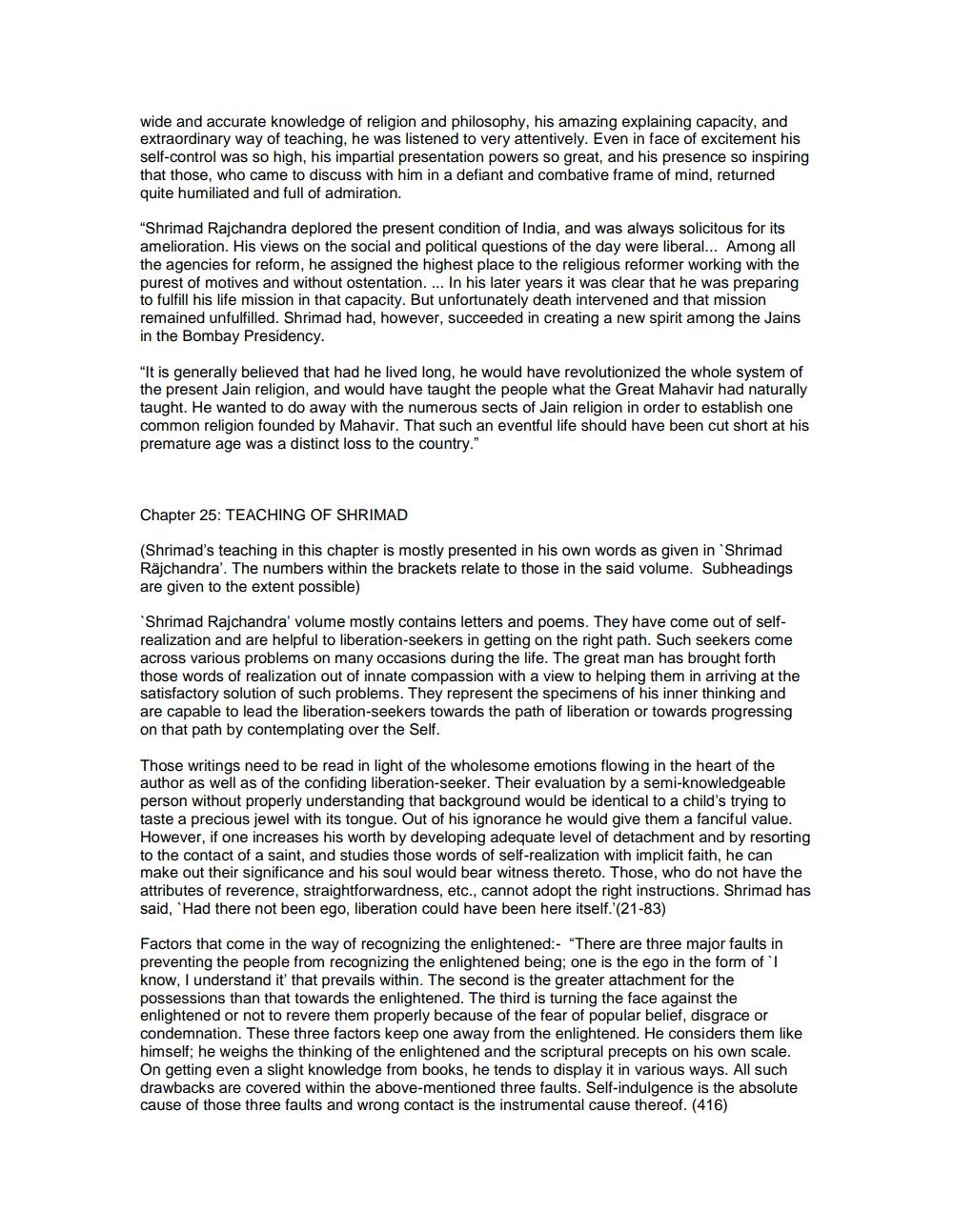________________
wide and accurate knowledge of religion and philosophy, his amazing explaining capacity, and extraordinary way of teaching, he was listened to very attentively. Even in face of excitement his self-control was so high, his impartial presentation powers so great, and his presence so inspiring that those, who came to discuss with him in a defiant and combative frame of mind, returned quite humiliated and full of admiration.
"Shrimad Rajchandra deplored the present condition of India, and was always solicitous for its amelioration. His views on the social and political questions of the day were liberal... Among all the agencies for reform, he assigned the highest place to the religious reformer working with the purest of motives and without ostentation. ... In his later years it was clear that he was preparing to fulfill his life mission in that capacity. But unfortunately death intervened and that mission remained unfulfilled. Shrimad had, however, succeeded in creating a new spirit among the Jains in the Bombay Presidency.
"It is generally believed that had he lived long, he would have revolutionized the whole system of the present Jain religion, and would have taught the people what the Great Mahavir had naturally taught. He wanted to do away with the numerous sects of Jain religion in order to establish one common religion founded by Mahavir. That such an eventful life should have been cut short at his premature age was a distinct loss to the country."
Chapter 25: TEACHING OF SHRIMAD
(Shrimad's teaching in this chapter is mostly presented in his own words as given in 'Shrimad Räjchandra'. The numbers within the brackets relate to those in the said volume. Subheadings are given to the extent possible)
Shrimad Rajchandra' volume mostly contains letters and poems. They have come out of selfrealization and are helpful to liberation-seekers in getting on the right path. Such seekers come across various problems on many occasions during the life. The great man has brought forth those words of realization out of innate compassion with a view to helping them in arriving at the satisfactory solution of such problems. They represent the specimens of his inner thinking and are capable to lead the liberation-seekers towards the path of liberation or towards progressing on that path by contemplating over the Self.
Those writings need to be read in light of the wholesome emotions flowing in the heart of the author as well as of the confiding liberation-seeker. Their evaluation by a semi-knowledgeable person without properly understanding that background would be identical to a child's trying to taste a precious jewel with its tongue. Out of his ignorance he would give them a fanciful value. However, if one increases his worth by developing adequate level of detachment and by resorting to the contact of a saint, and studies those words of self-realization with implicit faith, he can make out their significance and his soul would bear witness thereto. Those, who do not have the attributes of reverence, straightforwardness, etc., cannot adopt the right instructions. Shrimad has said, "Had there not been ego, liberation could have been here itself.' (21-83)
Factors that come in the way of recognizing the enlightened:- "There are three major faults in preventing the people from recognizing the enlightened being; one is the ego in the form of know, I understand it' that prevails within. The second is the greater attachment for the possessions than that towards the enlightened. The third is turning the face against the enlightened or not to revere them properly because of the fear of popular belief, disgrace or condemnation. These three factors keep one away from the enlightened. He considers them like himself; he weighs the thinking of the enlightened and the scriptural precepts on his own scale. On getting even a slight knowledge from books, he tends to display it in various ways. All such drawbacks are covered within the above-mentioned three faults. Self-indulgence is the absolute cause of those three faults and wrong contact is the instrumental cause thereof. (416)




